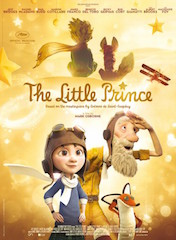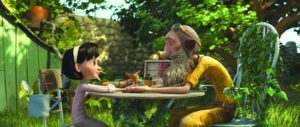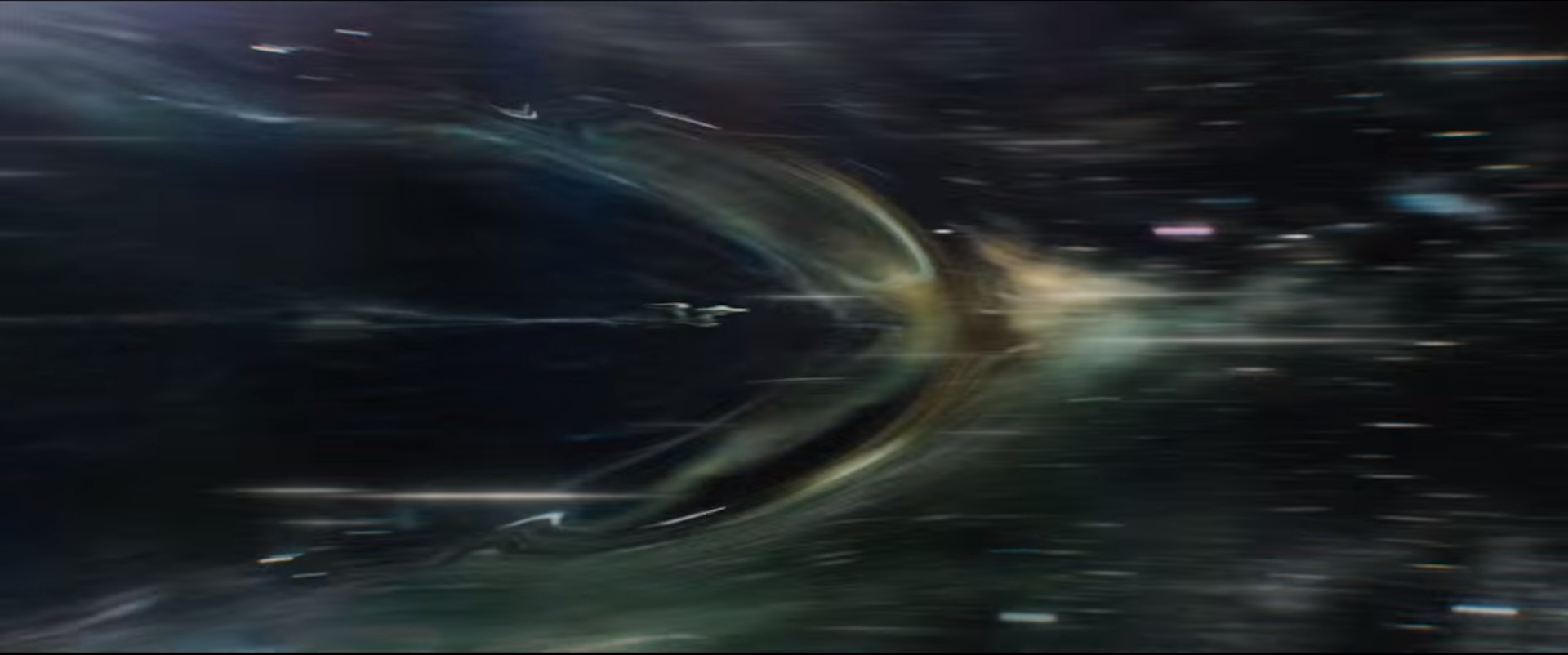 The Little Prince: a story of love, friendship, and the art of remaining a child while growing up
The Little Prince: a story of love, friendship, and the art of remaining a child while growing up
“I took their advice, and I grew up. I forgot all about being a child…”
Any attempt to bring a beloved classic children’s book to the screen comes with its own set of unique challenges. For over seventy years, Antione de Saint-Exupery’s The Little Prince has captivated children and adults all over the world. It is the fanciful and touching tale of an aviator who crashes his plane in the Sahara and meets a boy from another planet, who is searching for a friend. Director Mark Osborne (Kung Fu Panda) and writers Irena Brignull and Bob Persichetti took on the challenge and did not disappoint.
When I first heard there was going to be an animated feature of The Little Prince, my first thought was, “How?” Not because the story could not translate to the screen, but because it just isn’t long enough. Rather than augmenting Exupery’s work itself—running the risk of marring the story and incurring the wrath of fans of the book—the story is nestled within a larger narrative construct. In the prologue, Jeff Bridges narrates over the hand-drawn animation of Exupery’s original illustrations, and laments that the world has become “too grown up.” From there we are dropped into the real world—a world full of gray boxes, rigid lines, and even more rigid rules. We meet the otherwise unnamed Little Girl (Mackenzie Foy) and her Mother (Rachel McAdams), who are both desperately trying to get the girl into the academically elite Werth Academy—a school that looks like an ascetic cross between a mental institution and a prison, where children are thrust prematurely into adulthood. The Little Girl and her mother move to a new neighborhood that funnels into the prison school, but her new world of little gray boxes masquerading as houses also come with a new next-door neighbor: the Aviator.
Deftly voiced by the peerless Jeff Bridges, he begins a campaign to disrupt the rigidity of the Little Girl’s life—at first accidentally, by sending an airplane propeller through the side of her house, and then more subtly, in the form of a paper airplane with the first page of the story of the Little Prince (again, with the original hand-drawn illustrations). The visual separation between the CGI animation of the gray modern world and the story of the prince could not be more distinct. The beauty of the clay and cut-paper stop-motion animation of the prince’s own story does not disappoint—it is richly textured and absolutely stunning, full of vibrant color and life. As the girl keeps going back to the old man to hear more of the prince’s story, she begins to relearn how to be a child and regains her sense of wonder.
“Growing up isn’t the problem. Forgetting is.”
Just as importantly, the Little Girl learns the importance of friendship, just as the Little Prince does through his interplanetary and desert journeys. What the book and the film poignantly illustrate is that none of us can go through this life alone, but when we open ourselves up to love, we open ourselves up to hurt as well. As the prince travels the galaxy towards earth, looking for a friend, he journeys to more tiny planets similar to his own: small rocks with a population of one. The grown-ups he meets on these planets are “odd,” and seem to embody some of the worst traits of humanity: greed, conceit, and selfishness. Still searching for a friend, the prince continues his quest and lands on Earth; he lands in the Sahara, where he encounters several desert animals, befriends a fox, and meets the Aviator. One of the most defining lines of the story is actually delivered by the fox: “If you tame me, we shall need each other.” And while it may be easier not to need anyone, it is an empty way to live.
 Lines between the real world and the prince’s world become blurred when the Little Girl flies off in the Aviator’s biplane (which, naturally, he keeps in his backyard) in search of the Little Prince. She lands on a planet that is a miniaturized, extreme version of the adult world: a compact and over-orderly metropolis full of adult automatons focused only on being “essential.” Rescue missions and hi-jinx ensue as the Little Girl fights for friendship, childhood, and remembering.
Lines between the real world and the prince’s world become blurred when the Little Girl flies off in the Aviator’s biplane (which, naturally, he keeps in his backyard) in search of the Little Prince. She lands on a planet that is a miniaturized, extreme version of the adult world: a compact and over-orderly metropolis full of adult automatons focused only on being “essential.” Rescue missions and hi-jinx ensue as the Little Girl fights for friendship, childhood, and remembering.
Overall, this screen adaptation of Exupery’s beloved story is very well done. The pacing is a little uneven, it has a couple of false endings, and the last act runs a bit long (I thought the film could have been 10-15 minutes shorter). Despite these imperfections, Mark Osborne’s film treats the original story with love and respect. Round that out with a playful score by Hans Zimmer and Richard Harvey, and the additional voice talents of Paul Rudd, Marion Cotillard, Benicio Del Toro, and Ricky Gervais, and the result is a beautiful and charming cinematic treat.
A story of love and loss, belief and faith, The Little Prince is well worth watching, for neophytes and lovers of the book alike. The film releases exclusively to Netflix on August 5. Fair warning: the film is quite moving, though you don’t realize it’s getting to you until just before the end, and suddenly you’re blubbering on the couch and hugging a pillow—or maybe that was just me.


